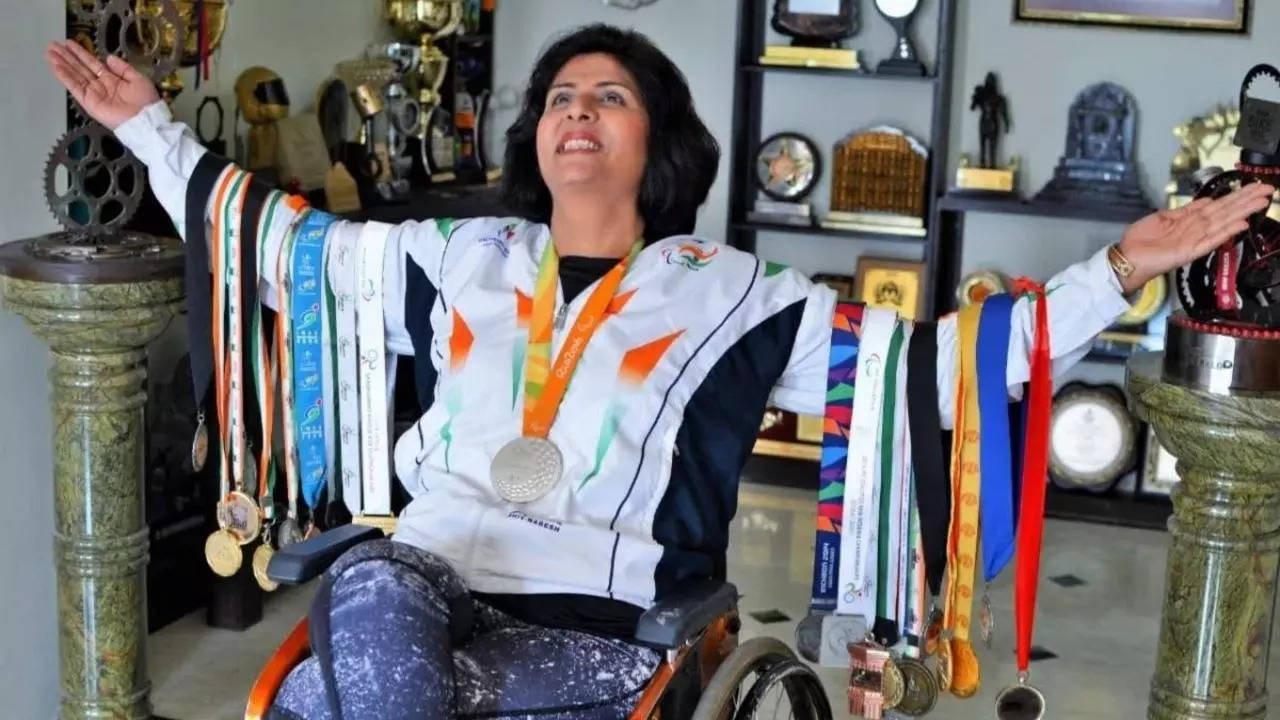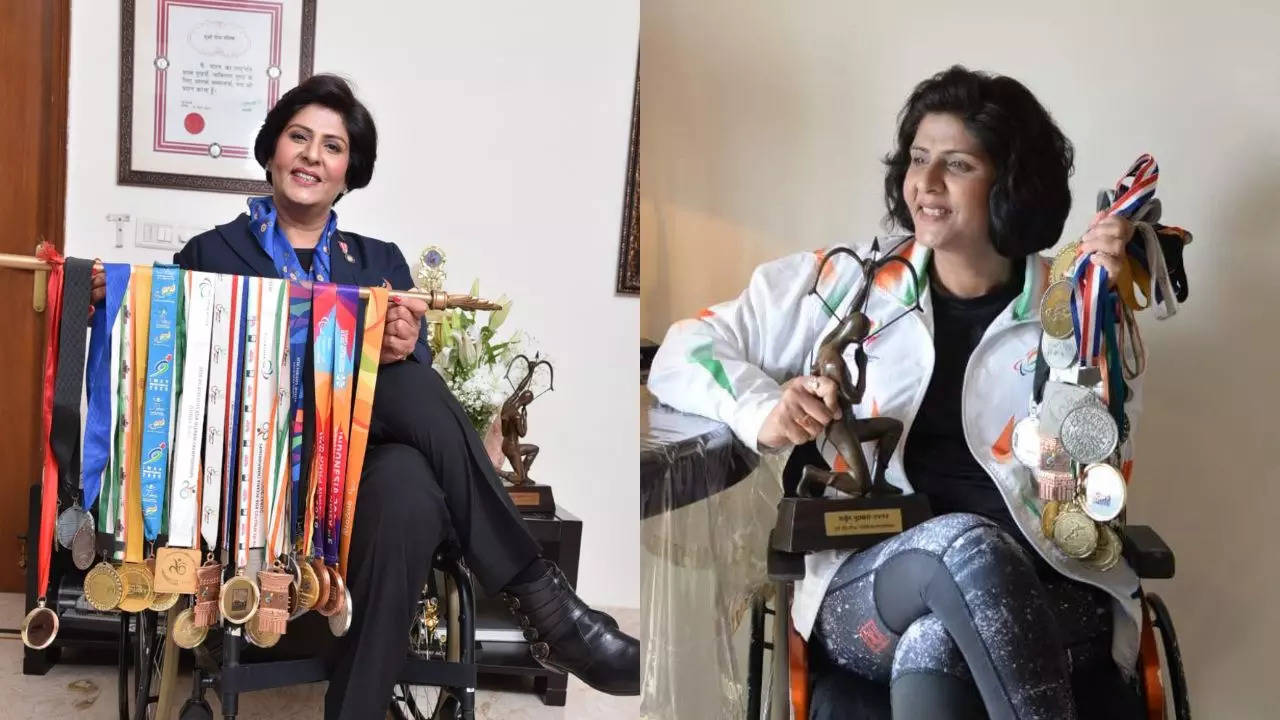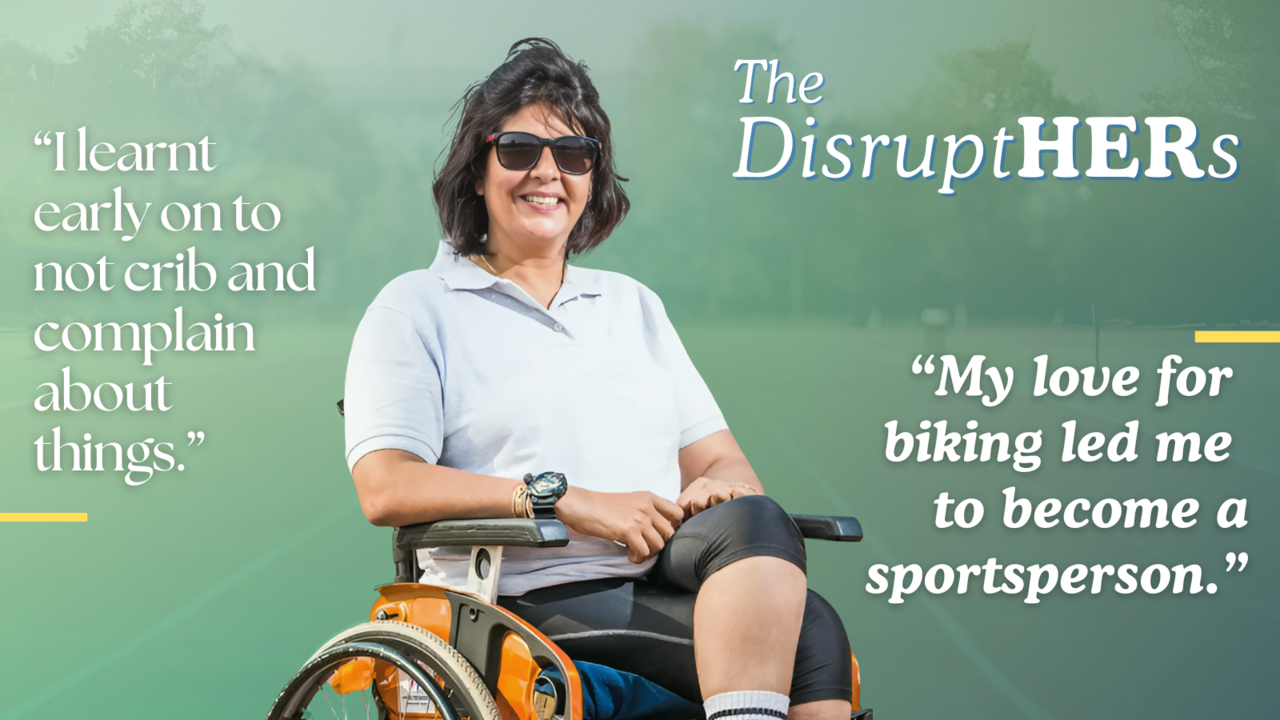DisruptHERs: How Paralympic athlete Deepa Malik fought dogma and disability to change the narrative of her life
When one looks Paralympic athlete Deepa MalikThis Paralympic athlete’s journey reminds us of the saying that life is only 10% what happens to you and 90% what you make of it. The Paralympic athlete’s life has not been easy. She was 5 years old when she was diagnosed with a tumor on her spine and it took her almost 3 years to fully recover and be able to walk on her own again.
Given the determination and steely courage that Deepa has displayed at different times in her life, one wonders what shaped and influenced her personality during her childhood. “After spending three years between the ages of 5 and 8 in and out of hospitals, once I recovered completely, I was not given any concessions nor was I treated with any sympathy by my parents,” Deepa recalls. Being born to a father who was in the Indian Army and a mother who had been an NCC cadet and a shooter, Deepa learnt the virtue of always having confidence in one’s abilities, irrespective of the resources one had. “My parents always told me to focus on what is within me and remember it, and that has been my life motto ever since,” she shares.

Deepa got married at an early age, around 19, to an army officer who shared the same passion for ride a bike and everything related to adventure. Everything was going smoothly in her life, but at the age of 29, the tumour came knocking again and this time with a vengeance. Doctors told her that she only had seven days left to walk on her own and people told her that one day she would die in a room full of urine and faeces, so Deepa was determined not to spend the rest of her life in a wheelchair. “My disability also affected my emotional and physical intimacy with my husband. Also, I didn’t undergo proper rehabilitation until 2006, so I didn’t really know how to manage my emotions, how to sit and control my bladder and bowel. That certainly created a chasm between us. However, to bridge some of that gap, I invited my husband to one of the cycling festivals and gifted him a bicycle. I was happy to see his eyes light up,” says Deepa.
Deepa has always had a curious attitude and when she started running a restaurant in Ahmednagar, she met people from different walks of life. “I met doctors, lawyers, engineers, army officers and many other people who gave me new perspectives to grow in life. One of them told me to look into modified bikes for differently-abled people and another suggested me to take a holistic rehabilitation course to improve my daily functioning. This really helped me find a direction.”
Deepa shares that it was her lifelong love for cycling that led her to become an athlete. “I wanted to ride a bike and to be able to do it again, I did hydrotherapy to strengthen my upper body. I started swimming and eventually got into training for different sports,” says Deepa.
Deepa started her sporting career at the age of 30. When she came to Delhi with her elder daughter and started living in a small one-room apartment near the JLN stadium, many people made fun of her. Comments like “Who plays at this age?”, “She is just passing the time”, “She will get tired, give up and come back someday” only reinforced Deepa’s determination to prove herself. And well, she did. She is the first woman to have won a medal at the Paralympic GamesShe won the prestigious Arjuna Award at the age of 42 and was also awarded the Padma Shri. Over the years, she has won numerous medals both at the national and international levels in many disciplines like shot put, javelin throw and discus throw.

“The same people who used to make fun of me for wasting my time turned around and made me wear a ‘Yeah‘ and handed him a ‘donkey“It was a lonely journey for me with many challenges that I faced alone, but it was worth it,” says Deepa.
Deepa says there were many people in her extended family who had tried to tell her parents how pointless it was to spend time, money and energy on her treatment. However, those same people changed their minds when Deepa brought laurels to the country. Ask her how she feels about it, and she says, “It definitely involves a lot of forgiveness. My only resentment was that people always expressed a lack of hope and faith when they saw my situation, but none of them ever came up with a solution,” she says.
From being considered a financial burden to becoming the sole breadwinner of the family, Deepa shares that life always takes a full turn.
Disclaimer:
The information contained in this post is for general information purposes only. We make no representations or warranties of any kind, express or implied, about the completeness, accuracy, reliability, suitability or availability with respect to the website or the information, products, services, or related graphics contained on the post for any purpose.
We respect the intellectual property rights of content creators. If you are the owner of any material featured on our website and have concerns about its use, please contact us. We are committed to addressing any copyright issues promptly and will remove any material within 2 days of receiving a request from the rightful owner.

